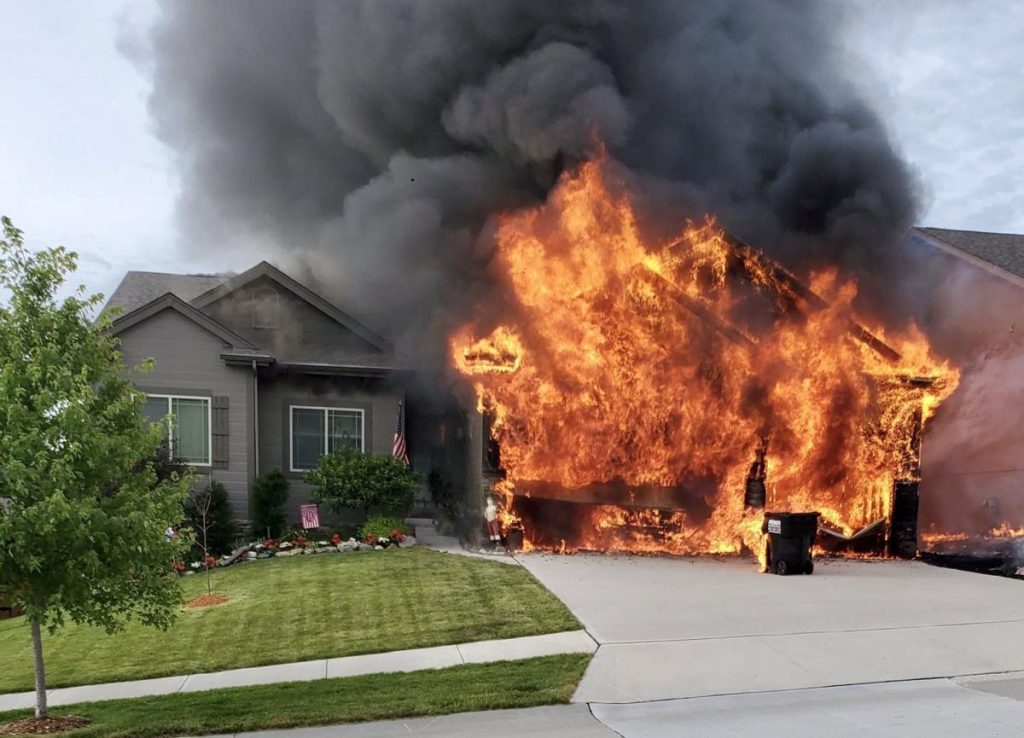Fire can be a devastating force, ripping through homes and lives in a matter of minutes. Thankfully, there are many steps we can take to prevent fires from starting in the first place. By adopting a proactive approach and implementing some key fire safety habits, we can create a safer living environment for ourselves and our loved ones.
1. Tame the Kitchen: The Heart of Home Fire Hazards
The kitchen, with its open flames, cooking appliances, and flammable materials, is often the epicenter of home fire risks. Here are three crucial steps to minimize these risks:
- Never leave cooking unattended: This may seem obvious, but it’s a surprisingly common oversight. A pot boiling over, grease igniting, or food charring can quickly escalate into a full-blown fire. Stay within sight and earshot of your cooking at all times, and turn off appliances when you’re finished.
- Keep flammable materials at bay: Paper towels, dishcloths, potholders, and even plastic utensils should be stored away from the stovetop and oven. Clear at least a three-foot (one-meter) radius around your cooking area to create a safe zone.
- Regularly clean cooking surfaces: Grease buildup on stovetops, ovens, and exhaust fans can easily ignite. Make it a habit to wipe down these surfaces after every use with a grease-cutting cleaner.
2. Quell Electrical Woes: Taming the Tangled Beasts
Faulty wiring, overloaded outlets, and improper appliance use can all spark electrical fires. Here are three ways to keep your electrical system safe:
- Regularly inspect cords and plugs: Look for frayed wires, cracked plugs, and loose connections. Damaged cords pose a serious fire hazard and should be replaced immediately.
- Avoid overloading outlets: Don’t plug too many appliances into a single outlet. This can overheat the wiring and create a fire risk. Use power strips with surge protectors to distribute the load safely.
- Unplug unused appliances: When you’re not using an appliance, unplug it from the outlet. This eliminates the risk of a stray electrical surge or power leak causing a fire.

3. Practice Safe Habits: Building a Culture of Fire Safety
Fire prevention goes beyond just preventing ignition sources. Here are three essential habits to cultivate a fire-safe home environment:
- Install smoke detectors and carbon monoxide alarms: These early warning systems can give you precious time to escape a burning building. Test them monthly and replace the batteries annually.
- Develop a fire escape plan: Discuss with your family two escape routes from each room in case the primary exit is blocked. Practice the plan regularly, including nighttime drills.
- Teach children about fire safety: Educate your children about the dangers of playing with fire and lighters. Keep matches and flammable liquids out of their reach.
Remember, fire prevention is not a one-time effort, but an ongoing process. By incorporating these simple steps into your daily routine, you can significantly reduce the risk of fire in your home and create a safer space for everyone.
Resources:
- National Fire Protection Association: https://www.nfpa.org/en
- United States Fire Administration: https://www.usfa.fema.gov/
- National Safety Council: https://www.nsc.org/
By following these tips and staying informed about fire safety best practices, we can all work together to create a fire-free future for ourselves and our communities.
FAQs:
1. What are the most common causes of home fires?
The leading causes of home fires are cooking, electrical problems, and heating equipment. In fact, cooking fires account for nearly half of all home fires, followed by electrical issues and heating equipment.
2. What are some tips for preventing kitchen fires?
- Never leave cooking unattended.
- Keep flammable materials away from the stovetop and oven.
- Clean cooking surfaces regularly to remove grease buildup.
- Turn off appliances when you’re finished cooking.
3. How can I prevent electrical fires?
- Regularly inspect cords and plugs for damage.
- Avoid overloading outlets.
- Unplug unused appliances.
- Have your electrical system inspected by a qualified electrician regularly.
4. What should I do if a fire starts in my home?
- Get out of the house as quickly as possible.
- Close doors behind you as you leave.
- Call 911 from a safe location.
5. How can I make my home escape plan more effective?
- Practice your escape plan with your family regularly.
- Make sure everyone knows two ways to escape from each room.
- Choose a meeting place outside your home where everyone will gather after they evacuate.







